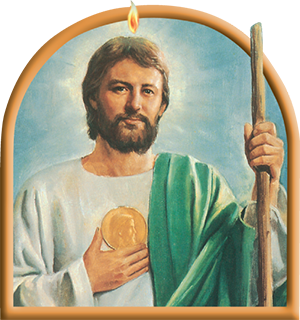Let's talk—but all of us!
What's needed to rebuild our church is a national synod of laypeople and clergy.
A COUPLE OF MONTHS AGO I attended a meeting with editors from different Protestant denominations. When talk turned to the scandal of priest sexual abuse in Boston and the appalling actions of Cardinal Law and other church officials, I was struck by the confidence with which our Episcopalian hosts pronounced these events a potentially very hopeful turning point for the Catholic Church. I didn't say it, but I kept thinking, "Yeah, right!" I was having a hard time seeing any good coming out of this disaster.
But after several more months of almost daily new reports of predatory priests and their episcopal enablers, there can be no more doubt that this crisis has shaken the U.S. Catholic Church to its core. Average, churchgoing Catholics are profoundly disillusioned and angry at the betrayal of trust by their church leaders and at the incomprehensible lack of a moral compass that let church officials endanger the lives and well-being of our children.
The meeting of the American cardinals with the pope in Rome was an important acknowledgment of the severity of the crisis, and the plans for a national policy to be hammered out at the June bishops' meeting in Dallas are steps in the right direction. But neither the pope nor the cardinals or the bishops alone can "fix" this crisis. In fact, it is part of the problem that, in terms of both accountability and decision-making, we still almost exclusively look up the hierarchical ladder. Instead of engaging in high-level, closed-door meetings of damage control, now is the time for greater openness, honest dialogue, and the broadest possible consensus-building and decision-making.
Recognizing their own credibility problem and the deep anger among the faithful, several bishops have acknowledged the need for greater involvement of laypeople, especially victims, in decisions about sex-abuse allegations against priests.
Considering the depth of the current crisis, however, I believe it is time for lay participation on a much broader scale. It is time to convene a national synod of the U.S. Catholic Church. Such a synod should be made up of a majority of elected lay representatives from all dioceses of the country as well as representatives of the clergy, women and men religious, bishops, as well as delegates from key national Catholic organizations.
The first task of such a synod ought to be a frank and comprehensive examination of all aspects of the priest sexual abuse scandals and their cover-ups, and discussion and adoption of policies that will help address their root causes. And Cardinal Roger Mahony had it right when he said that all relevant issues—including the currently taboo subject of women's ordination—ought to be part of that discussion.
But just as important as wrestling with this crisis—and maybe even more so—we need a national synod to bring the wisdom of all the people of God to bear on the key challenges facing the U.S. Catholic Church in the 21st century—particularly the role of women, the mistrust of religious institutions by young people, lay leadership, the priest shortage, Catholic identity, the mission of the church in the world, effective parish ministry, human sexuality, and authority and governance in the church. The anger that has erupted in the current crisis, Father Donald Cozzens recently told me, is in part also fueled by the frustration of intelligent laypeople, who for too long have not been listened to and have been told what they can and cannot think and talk about.
Does an open and honest discussion of all these topics sound utopian? Maybe, but there are several viable models and precedents for this. Following the Second Vatican Council, the Catholic Church in a number of countries took seriously the council's "earnest desire that the venerable institution of synods and councils flourish with fresh vigor" (Christus Dominus). In the 1970s, Catholics in the Netherlands, Switzerland, and West Germany, for example, were energized by impressive, comprehensive national synods of laypeople and clergy. More limited yet equally inspired national assemblies were held in the United States with the original Call to Action Conference 1976 in Detroit and more recently in Austria with the 1998 "Dialogue for Austria" (which was also prompted by a sexual-abuse scandal and allegations of a cover-up).
Of course, most of the votes of these assemblies were later ignored, derailed, or buried by Vatican inaction or interventions and by acquiescence of bishops to those interventions.
But if we trust in the Holy Spirit, all of us—laity and clergy together—ought to have the courage to take responsibility for rebuilding our church from the ashes of the current crisis. Maybe then, having been brought low by the terrible priest sex abuse scandal, we can stop trying to keep up appearances and truly be the people of God on earth.
Meinrad Scherer-Emunds is executive editor of U.S. Catholic. This article appeared in the June 2002 issue of U.S. Catholic.
